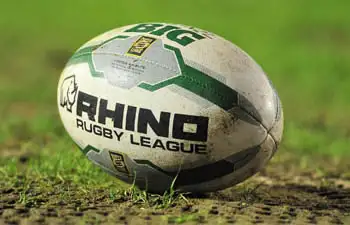NRL refs to be trained by wrestling coach

NRL referees are to be advised by a wrestling coach this season, in order to better spot techniques used to slow down the ruck.
NRL officials have been given new guidelines for this season on how to interpret the laws surrounding the ruck area, with the emphasis now on an even faster play-the-ball.
In trial games so far this year, referees have noticed that clubs are using an ever more varied array of techniques to slow things down at the ruck.
But now they will have Milton Dymock to advise them on what to look out for. Dymock is the brother of Canterbury assistant coach Jim Dymock.
He has previously worked with with Cronulla, Wests Tigers, Sydney Roosters, Bulldogs, Parramatta, St Helens and Samoa, and was a pioneer of using wrestling techniques in rugby league.
Dymock will help referees to spot things like chicken wings, crusher tackles and grapples.
There is also a new interpretation of the law at the tackle for this season in the NRL. Referees will be looking for every single defensive player in a tackle to remove themselves once ‘held’ is called, otherwise a penalty will be given.
This, it is hoped, will reduce the instances of three-man tackles, as well as improving overall safety and speed of play.
“We are on the front foot here, we are getting better prepared and better educated for what is going to come at us,” NRL head of football Todd Greenberg said.
“Clearly there are very sophisticated operations inside clubs and they are all looking for a competitive advantage.
One of the key things for us is to make sure we understand trends before they are set upon us.
For a long time those trends have been set upon the game by the coaches, and NRL football needs leadership to take the game forward. We need to get in front of the curve.
“We have been talking about making sure we give Tony Archer and his referees opportunities to learn and develop, and equally for the match review panel, so it made perfect sense to engage someone with great experience in wrestling both here and in the UK.”
Archer, the elite performance manager for the NRL referees, felt that Dymock’s appointment would be a massive help to match officials.
He also outlined some of the techniques that players were now using in the tackle.
“I came through the era where the game started to develop wrestling as a single referee,” he said.
“Putting the two referees in eliminated things that we started with, which was the grapple, and our identification on field last year of the crusher was really good.
“But we understand that the clubs will go to another level to slow the play the ball up again so we need to be ahead of the pack again.
“That is part of the reason we engaged [Dymock]. We bought the wrestling coach on to educate the referees. This allows them to see clearer because they see what [the players] are doing.”
“Once the tackle is complete, if the referee instructs the ruck to move or the players to get off, the defenders are required to release that player.
“They cannot go off one at a time. If they take him to ground and they are locked in either side of him and we say for them to release, they both release him.
“What that allows [the ball carrier] to do is have freedom to play the ball so he is now loose as a ball carrier, he can roll over and he can start the play the ball process.
“We have noticed in the trials that there has been an increase in things like hands on the ball, they crowd in to the play the ball and they have spun to the front.
“We haven’t seen that for a long time. Previously they didn’t do that because they controlled him on the ground.
“I am fully aware they will get better at that but if they are as they have been in the trials there will be a number of penalties because they are slowing up the play the ball.
“It will tidy the ruck up and there will be less three-man tackles.”